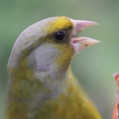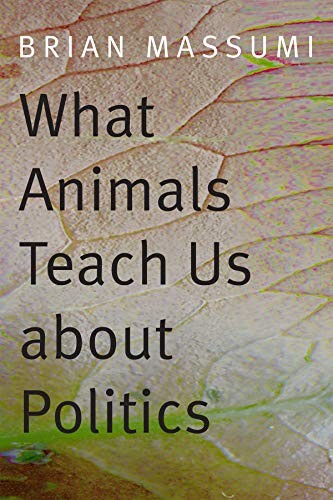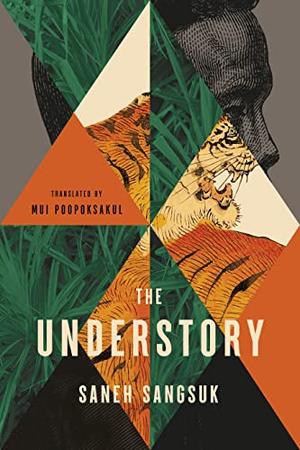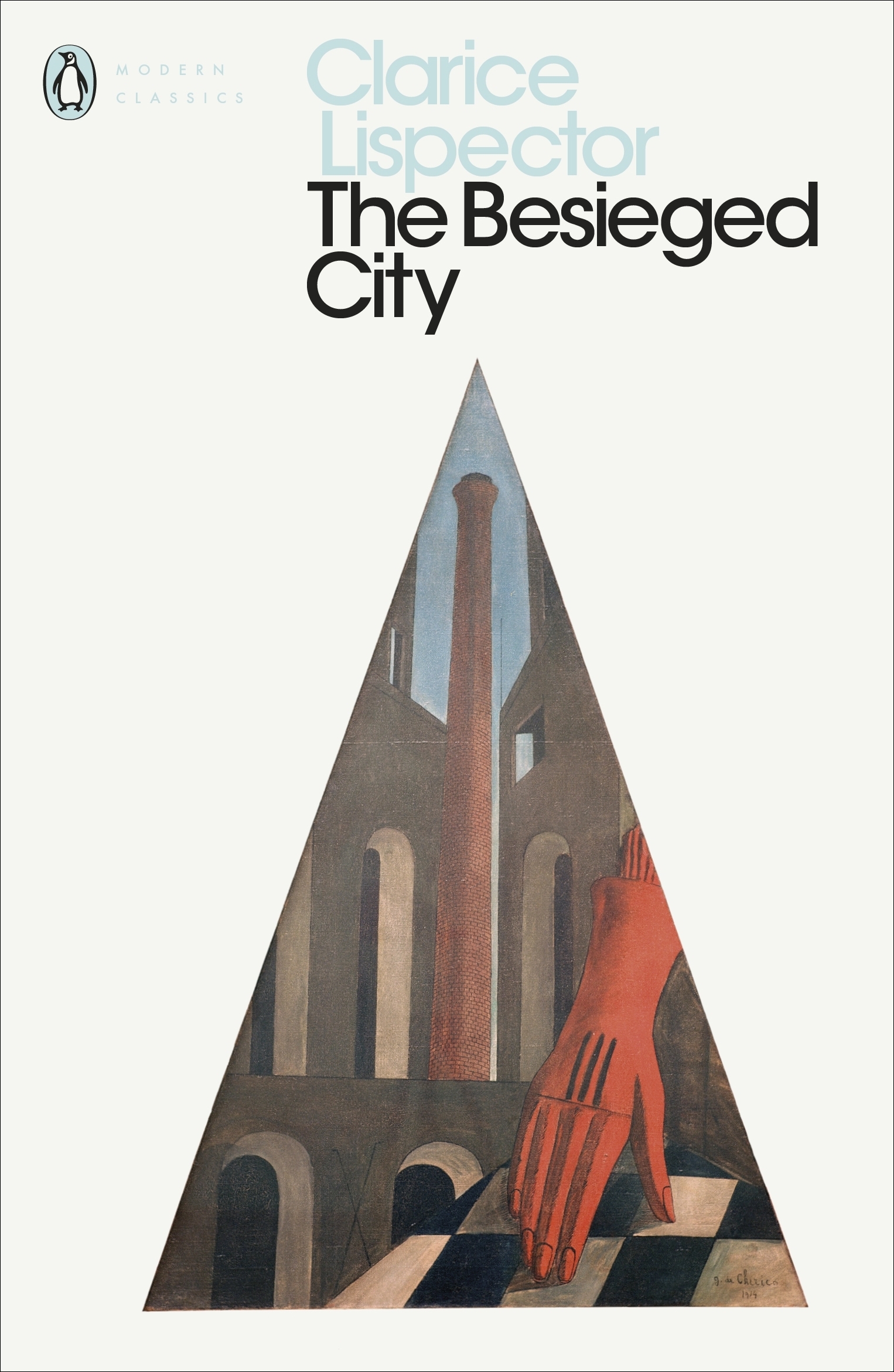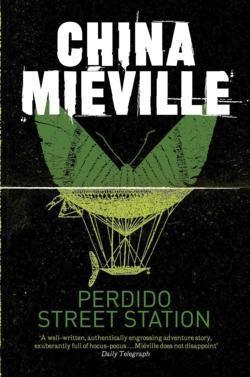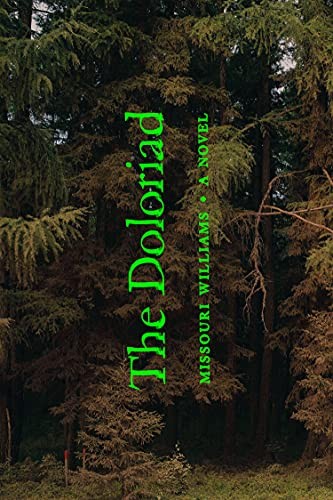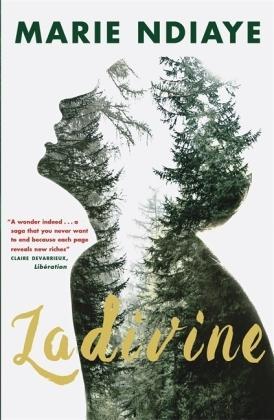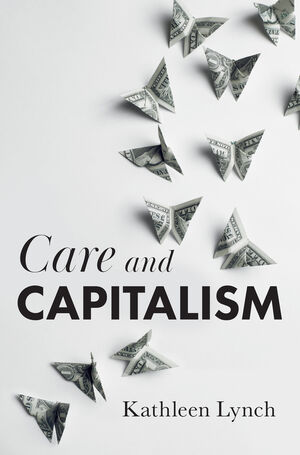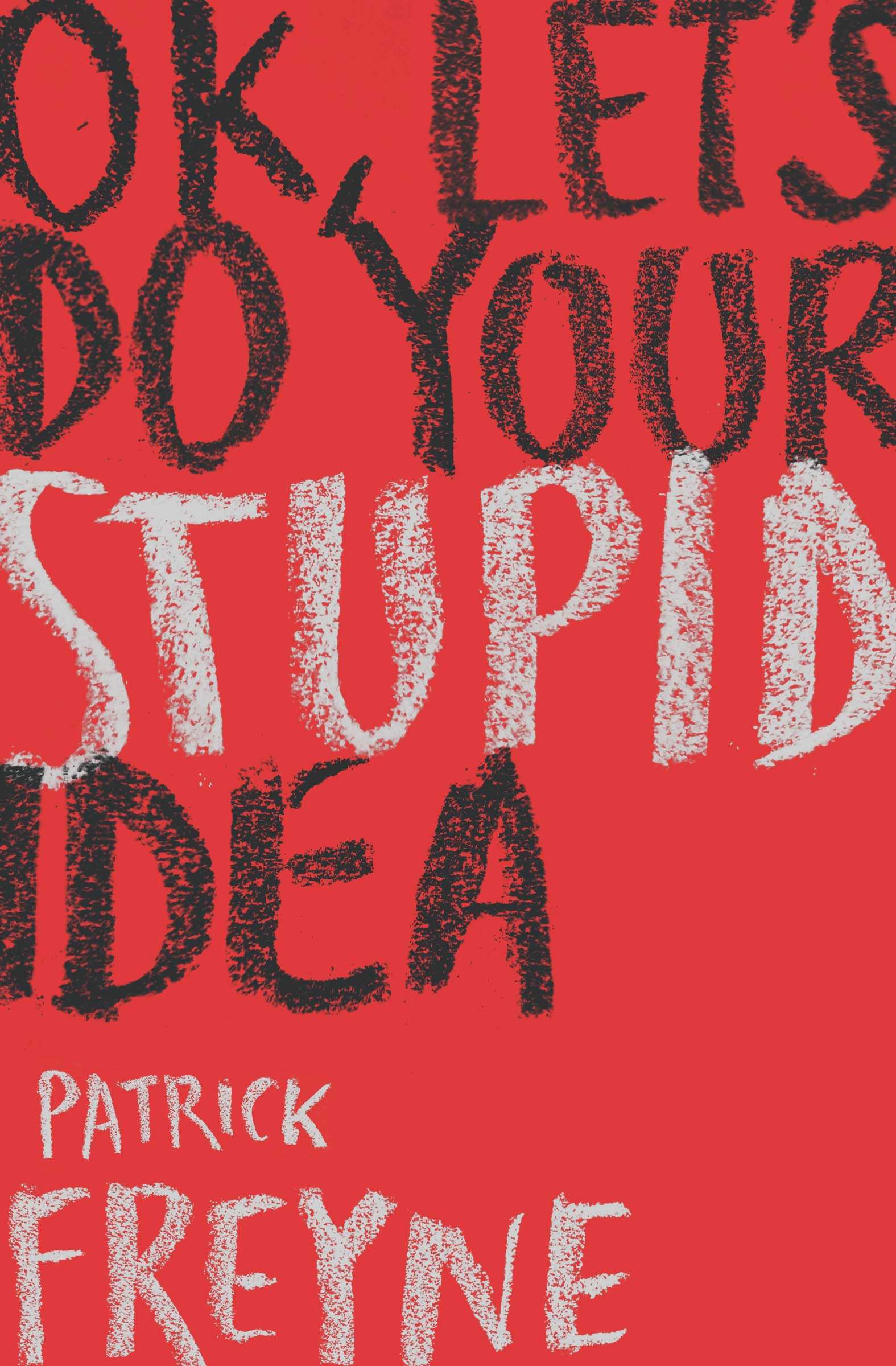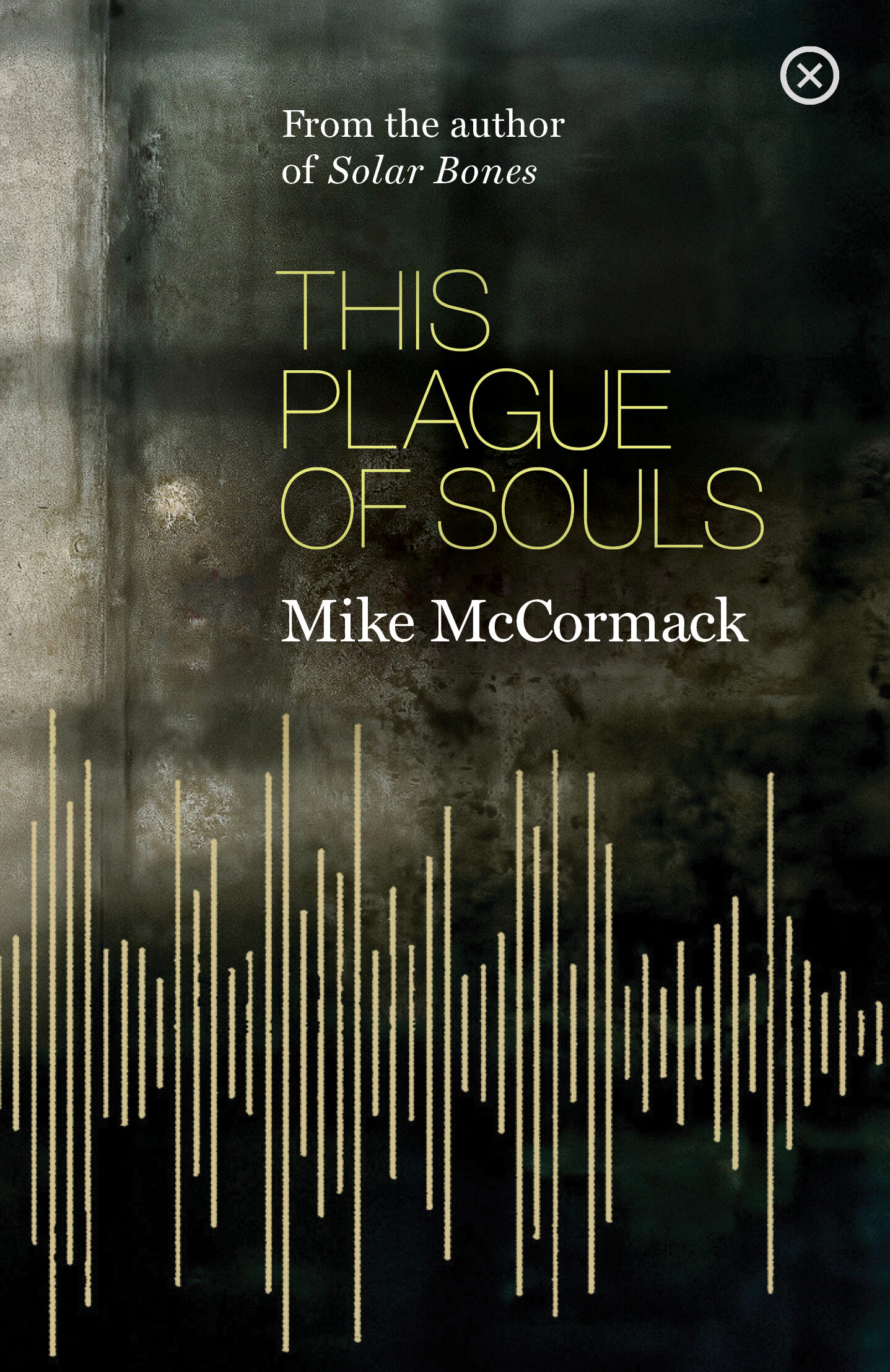The author is a friend of a friend and my partner bought a copy at a day dedicated to the hawthorn tree. An unknown quantity.
Reviews and Comments
I arrange things into artworks, including paint, wood, plastic, raspberry pi, people, words, dialogues, arduino, sensors, web tech, light and code.
I use words other people have written to help guide these projects, so I read as often as I can. Most of what I read is literature (fiction) or nonfiction on philosophy, art theory, ethics and technology.
Also on Mastodon.
This link opens in a pop-up window
Fionnáin started reading The Clainings Tree by Gerry Bohan
Thinking through animal play
4 stars
Brian Massumi presents a theory on how play works as language and as a substitute for violent action in animal and human actions. It's a fun treatise, well presented in a longer first section before three other supplements that look at praxis of the ideas presented. The first of these is a pure joy to read.
This book is very dense philosophy, and at times it feels preposterously filled with jargon even if Massumi felt that language was necessary for accuracy. Yet it is also full of wonderful moments and deep thoughts that challenge human exceptionalism and create ways to consider other-than-human engagement from a nonhuman frame. It draws heavily from Deleuze and Guattari and often the writing feels like their more playful style, pushing the boundaries of what language can do. This is best illustrated in the supplementary chapter 'To Write Like a Rat Flicks Its Tail', which thinks …
Brian Massumi presents a theory on how play works as language and as a substitute for violent action in animal and human actions. It's a fun treatise, well presented in a longer first section before three other supplements that look at praxis of the ideas presented. The first of these is a pure joy to read.
This book is very dense philosophy, and at times it feels preposterously filled with jargon even if Massumi felt that language was necessary for accuracy. Yet it is also full of wonderful moments and deep thoughts that challenge human exceptionalism and create ways to consider other-than-human engagement from a nonhuman frame. It draws heavily from Deleuze and Guattari and often the writing feels like their more playful style, pushing the boundaries of what language can do. This is best illustrated in the supplementary chapter 'To Write Like a Rat Flicks Its Tail', which thinks with Franz Kafka's Metamorphosis to explore being-animal through art.
Fionnáin wants to read Understory by Saneh Sangsuk
Read a review on this blog, seen via their Mastodon page, and was curious to try this winding narrative story.
Fionnáin reviewed Why Rebel by Jay Griffiths
Passionate Rebellion
4 stars
Jay Griffiths is a unique voice in climate activism. They easily move through essay and fiction, keeping a creative and passionate voice in either. This collection of essays is the former, about how and why Griffiths became involved with Extincion Rebellion.
The second half of the book focuses on this move into rebellion, but the first half is the one that caught my attention more. I love how Griffiths describes metaphor, and the role(s) of artists as shamanic guides. How the essays present the contrast between rationalism, literalism and libertarianism with environmental and social movements is beautiful and captivating. The personal stories are also perfectly pitched.
Fionnáin reviewed The Besieged City by Clarice Lispector
To see is to change
3 stars
I adore Clarice Lispector, whose prose and presentation is unlike any other author I have read. This novel, like all of her work, is brilliantly written, unique, and uncanny.
The story of Lucrétia Neves living in the township of Sao Geraldo is one of passing time. As she watches the horses and the city, it transforms in front of her eyes, in transforms because of her watching it. Her life changes and moves away, but she drags herself and her new life back into that world. The book is amazing for how it presents the changing world, the evolution of a city through the eyes of a person, and the growth of a self through the eyes of themselves and others.
Unfortunately, it suffers from its strengths, particularly in the early sections where the weirdness is too much, too repetitive, even though this is partly the point. But as an …
I adore Clarice Lispector, whose prose and presentation is unlike any other author I have read. This novel, like all of her work, is brilliantly written, unique, and uncanny.
The story of Lucrétia Neves living in the township of Sao Geraldo is one of passing time. As she watches the horses and the city, it transforms in front of her eyes, in transforms because of her watching it. Her life changes and moves away, but she drags herself and her new life back into that world. The book is amazing for how it presents the changing world, the evolution of a city through the eyes of a person, and the growth of a self through the eyes of themselves and others.
Unfortunately, it suffers from its strengths, particularly in the early sections where the weirdness is too much, too repetitive, even though this is partly the point. But as an experiment, the book is a gift from an amazing writer.
Fionnáin started reading Why Rebel by Jay Griffiths
Fionnáin started reading Perdido Street Station by China Miéville
Fionnáin wants to read Doloriad by Missouri Williams
Added to the list and ordered from the library after spotting the review by @lucasrizoli@bookwyrm.social and then reading a little more about the book.
Fionnáin started reading What animals teach us about politics by Brian Massumi
Fionnáin reviewed Ladivine by Marie NDiaye
A difficult experiment
2 stars
NDiaye's prose is like no other author that I have read. Their previous book, Three Strong Women tangled three stories together, each with its owb uncanny mood and setting. In Ladivne there are again three stories, those of three generations of women dealing with trauma and issues of (un)belonging in France.
The writing is intricate and unique, and builds a world from the inner perspectives of the characters, who are richly developed. However, the story never really got going for me, and was mostly told in the early chapters before being trundled along for the rest of the book. The depth of character motivation, understanding each person's complex motivations for making the choices that they make, is an amazing experiment in writing, but for me the experiment that doesn't quite pay off for the whole book.
Fionnáin reviewed Care and Capitalism by Kathleen Lynch
An anthology of western care in academia
3 stars
Care and Capitalism is a particular type of academic book, filled to bursting point with references to other academic sources like an encyclopedia of other people's research. The topic is as the title suggests, encompassing many theories from social, political and philosophical theory.
The sheer volume of reference material is the result of a lifetime career reading about care, capitalism, feminism and love, and for that this is impressive. However, as someone who has read a good deal of the source material, I found the lack of argument or perspective a bit flat. It's more like an introductory text for sociologists who have no framework for where the structural problems exist in care (or white patriarchal power).
Fionnáin started reading Care and Capitalism by Kathleen Lynch
Fionnáin reviewed OK, Let's Do Your Stupid Idea by Patrick Freyne
A sock and buskin memoir
4 stars
There are few writers like Patrick Freyne that can make me laugh until tears roll from my eyes and I drop the book on the floor. Even fewer can force me to expel a whimper a few sentences later with a punch-in-the-gut moment of care or grief. And as a journalist, he does this every week with The Irish Times.
This is a book of memoir essays, not my favourite writing form but one that fits Freyne's style. He meanders between comedy and tragedy easily, including hilarious anecdotes of his childhood, his pirate radio misadventures and his band tours (I loved the NPB before he was ever a writer and really enjoyed reading those stories) interspersed with deep, thoughtful essays of his work in a care home or as a journalist. While I loved the laughs, the more touching chapters were the ones that will stay with me. I am …
There are few writers like Patrick Freyne that can make me laugh until tears roll from my eyes and I drop the book on the floor. Even fewer can force me to expel a whimper a few sentences later with a punch-in-the-gut moment of care or grief. And as a journalist, he does this every week with The Irish Times.
This is a book of memoir essays, not my favourite writing form but one that fits Freyne's style. He meanders between comedy and tragedy easily, including hilarious anecdotes of his childhood, his pirate radio misadventures and his band tours (I loved the NPB before he was ever a writer and really enjoyed reading those stories) interspersed with deep, thoughtful essays of his work in a care home or as a journalist. While I loved the laughs, the more touching chapters were the ones that will stay with me. I am left with new thoughts on care and compassion, as well as an increased respect for good journalism. A couple of the essays don't say much, but overall this is a really enjoyable and touching read by an excellent journalist and writer.
Fionnáin reviewed This Plague of Souls by Mike McCormack
Falling apart around us
3 stars
I love Mike McCormack's prose and imagination. This Plague of Souls is of his more sinister canon, trailing out a mystery of a protagonist who has arrived home from prison to an empty house, void of his wife and child, and where he receives continuous phone-calls from an unnamed caller who seems obsessed with how he got out of a prison sentence. In the final section, this mystery unspools into another, broader mystery.
While some of the imaginative ideas are rich, such as the backstory of the protagonist and his wife's first living together in rural Ireland, the book failed to form any sense of intrigue. It felt a little like a short story that had been stretched out like an elastic band, that lacked any more content to become whole as a novel. The prose is good throughout, and the book has merit in its involved portrayal of a …
I love Mike McCormack's prose and imagination. This Plague of Souls is of his more sinister canon, trailing out a mystery of a protagonist who has arrived home from prison to an empty house, void of his wife and child, and where he receives continuous phone-calls from an unnamed caller who seems obsessed with how he got out of a prison sentence. In the final section, this mystery unspools into another, broader mystery.
While some of the imaginative ideas are rich, such as the backstory of the protagonist and his wife's first living together in rural Ireland, the book failed to form any sense of intrigue. It felt a little like a short story that had been stretched out like an elastic band, that lacked any more content to become whole as a novel. The prose is good throughout, and the book has merit in its involved portrayal of a character who is a chameleon. Enjoyable, not unmissable.
